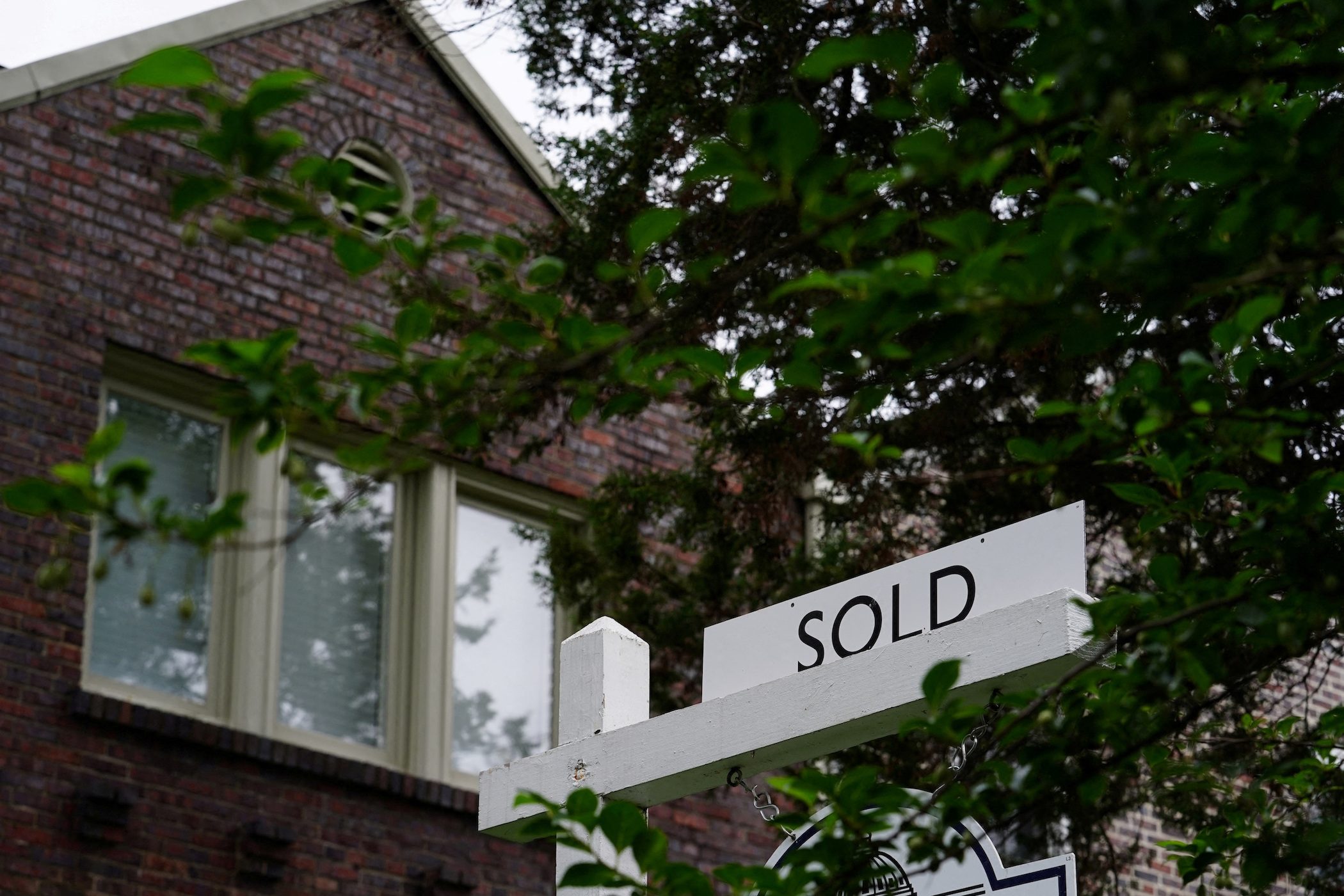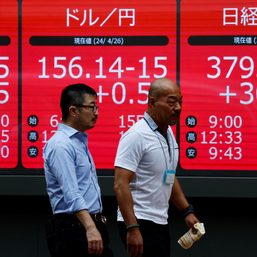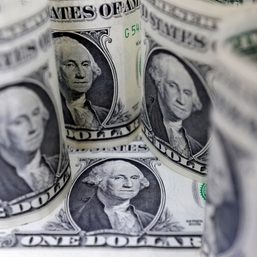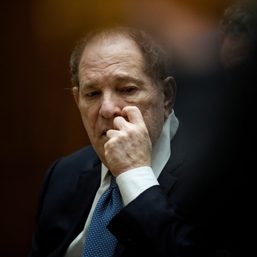SUMMARY
This is AI generated summarization, which may have errors. For context, always refer to the full article.

WASHINGTON, USA – US consumer confidence dropped to a nine-month low in April as worries about the future mounted, further heightening the risk that the economy could fall into recession this year.
The consumer confidence survey from the Conference Board on Tuesday, April 25, also suggested that Americans were getting ready to hunker down as dark clouds gather, with the share of them planning to buy major household appliances over the next six months falling to the lowest level since 2011.
Vacations were also not in the cards for many. Consumers have shown resilience despite high inflation and a rise in interest rates, keeping the economy afloat, thanks to a strong labor market.
The tide could be turning as the effects of the Federal Reserve’s fastest rate hiking campaign since the 1980s to tame inflation begin to have a broader impact. Consumers are also growing more sensitive to higher prices.
“Rates have been on the rise for over a year, and we’re seeing the effects,” said Jennifer Lee, a senior economist at BMO Capital Markets in Toronto. “Despite a still-tight jobs market, which is still a good thing, sticky inflation does have its consequences.”
The Conference Board said its consumer confidence index fell to 101.3, the lowest reading since July 2022, from 104.0 in March. Economists polled by Reuters had expected the index to be unchanged at 104.0 in April.
The drop reflected a deterioration in expectations for consumers under 55 years and households earning $50,000 and over annually, suggesting a broadening in concerns about the economy beyond low income households.
Though consumers’ assessment of current conditions improved, their short-term outlook deteriorated. The short-term outlook measure has dropped below the level associated with a recession in the next year in 13 of the last 14 months.
The risks of a downturn have risen following the collapse of two regional US banks in March, which tightened credit conditions. A looming fight to increase the federal government’s $31.4-trillion borrowing cap also poses a threat to the economy.
Consumers remained upbeat on the labor market, with the share of them viewing jobs as “plentiful” rising, while the proportion of those saying jobs were “hard to get” dipped.
The survey’s so-called labor market differential, derived from data on respondents’ views on whether jobs are plentiful or hard to get, rose to 37.3 from 36.5 in March, consistent with a tight labor market.
This measure correlates to the unemployment rate from the US Department of Labor. The jobless rate was 3.5% in March.
US stocks were trading lower. The dollar rose against a basket of currencies. US Treasury yields fell.
Buying plans weaken
Consumers’ 12-month inflation expectations slipped to 6.2% from 6.3% last month.
The share of those planning to buy household appliances over the next six months dropped to 41%, the smallest since September 2011, from 44.8 in March. The proportion planning to buy motor vehicles was the smallest in nine months.
The share of those planning to go on vacation was the smallest since last June. Fewer consumers intended to purchase a home. Some economists, however, cautioned against reading too much into the drop in buying plans.
“Take consumer purchase plans with a grain of salt,” said Tim Quinlan, a senior economist at Wells Fargo in Charlotte, North Carolina. “This (drop in plans to take a vacation) stands in contrast to reports of record-long wait times for passport application processing and airline ticket bookings that are already close to filling up for the summer.”
That skepticism also extended to home purchase plans. A separate report from the Department of Commerce on Tuesday showed new home sales surged 9.6% to a seasonally adjusted annual rate of 683,000 units in March, the highest level since March 2022.
New home sales are counted at the signing of a contract, making them a leading indicator of the housing market, though they can be volatile on a month-to-month basis. Buyers have been taking advantage of any dip in mortgage rates to purchase homes.
The average rate on the popular 30-year mortgage, which hit a peak of 7.03% in late 2022, was mostly lower in March, according to data from mortgage finance agency Freddie Mac.
Signs that the housing market was stabilizing at lower levels were reinforced by other data on Tuesday showing single-family home prices increased in February after seven straight monthly declines.
The S&P CoreLogic Case-Shiller national home price index, covering all nine US census divisions, rose 0.2% month-on-month in February after adjusting for seasonal fluctuations. That followed a 0.2% fall in January.
“The housing markets continue to vary across regions and price tiers, but lower mortgage rates and low inventories have been helpful in providing the floor for prices in markets where prices seemed to have nosedived following mortgage rate surge,” said Selma Hepp, chief economist at CoreLogic. “Home prices nationally have bottomed out.” – Rappler.com
Add a comment
How does this make you feel?

![[OPINION] A rebellion long overdue](https://www.rappler.com/tachyon/2024/06/mass-uprising-matrix-june-4-2024.jpg?resize=257%2C257&crop_strategy=attention)








There are no comments yet. Add your comment to start the conversation.